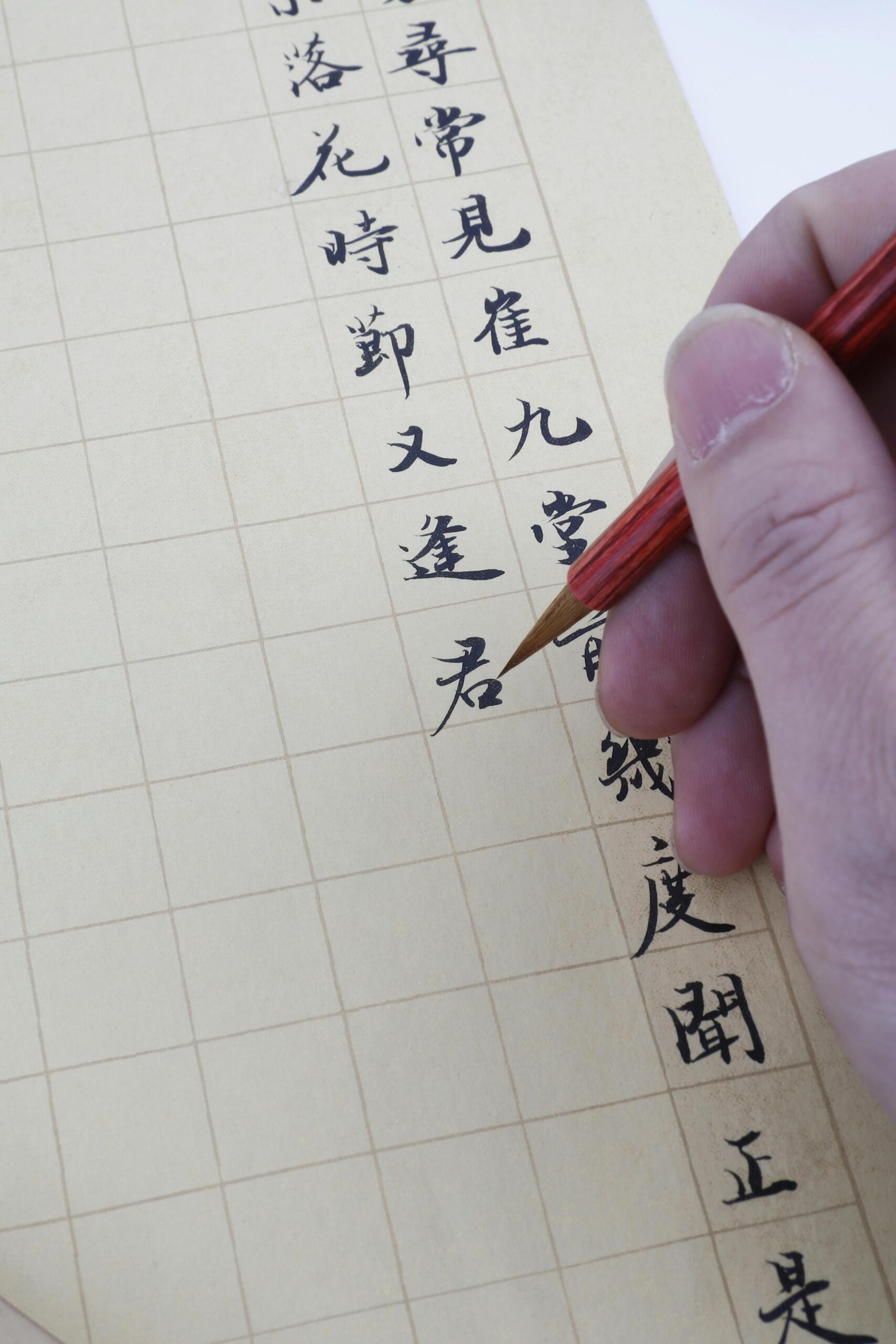Understanding Chinese Verbs
- Unlike many other languages, Chinese (Mandarin) verbs are not conjugated.
- The verb "to be" in Chinese is one of the most essential and complex verbs in Chinese.
- It's important to learn primary action verbs in Chinese so you can express yourself easily in conversations.
- Learn standard phrases in Chinese to make your next trip to China smoother and more culturally rich.
Verbs are fundamental in any language, as they allow us to express actions, states, and emotions clearly. Mandarin Chinese is no exception: it also uses verbs to construct sentences and communicate ideas. Mastering these essential Mandarin verbs will allow you to form various phrases and better express yourself in everyday conversations.
Below, we will explore some common Chinese verbs that will be very useful when you start learning. Whether you have just started learning Chinese, plan to travel to China for the first time, or read some Confucius, we hope to make using verbs in Mandarin Chinese easy!


Mandarin Basics: How do Chinese Verbs Function?
Contrary to other languages, Mandarin does not conjugate verbs at all. Verbs remain in all kinds of communication when written and spoken in their infinitive form. This is good news for those learning Mandarin Chinese because it means you only have to remember one verb tense: infinitive, which, despite how you use it, will not change.
While this is a key grammar rule, it is essential to note that word order is vital in spoken Chinese, reading, and writing.

Conjugating the verb with different verb tenses is common in European Languages like Spanish and French, where the verb changes depending on who is speaking, who you are talking to, or what you are speaking about.
Mandarin includes post-verb modal and temporal structures to add context to the words and phrases we are trying to communicate. These modal and temporal structures let us to provide information on:
- The weather
- An aspect of something
- The order of something
- The specific process
You can also add post-verb suffixes to make sentences richer and more detailed. You can use post-verb suffixes to express the location, the whole process, and possibility.
Mandarin Verb Example: English Comparison
| English phrase with verb "to eat" | Mandarin phrase with verb 吃 (chī) – "to eat" | Explanation |
| I eat apples. | Wǒ chī píngguǒ. (我吃苹果) | 我 (wǒ) – I 吃 (chī) – eat 苹果 (píngguǒ) – apples In both English and Mandarin, the verb “eat” comes after the subject and before the object: Subject + Verb + Object |
| I ate apples. | Wǒ chī le píngguǒ. (我吃了苹果) | 吃 (chī) = "to eat" (base verb) 了 (le) = particle indicating a completed action in the past In this case, 吃了 (chī le) = "ate" same structure: Subject + Verb (past) + Object. Notice that verb chī does not change from present to past tense. |
The Verb "To Be" in Chinese
The verb "to be" (shì) is definitely one of the more essential Mandarin verbs. It is imperative to understand this verb to understand how to read Chinese texts. For this verb and all others, you must know when it is okay to use and when it is not. Be aware that a direct translation from English may not always provide an accurate way to say the same thing in Chinese.
It is used to express who you are.
It is used to connect nouns (ex. noun + shi + noun)
It is not used to connect adjectives.
It does not describe a state of being (e.g., you can not use it to say "he is big.")
You do not use it to express your location (e.g., "I am at the cinema.")
Next, let's look at some examples of how to use the verb "shi". Take note of the ways the verb "shi" is used, and the position of the verb in a sentence.
📌 Some examples of how to use (Shì)
| Chinese Example | English Translation |
| Wǒ shì xuésheng | I am a student. |
| Nǐ shì John ma? | Are you John? |
| Tāmen shì yǒuqián rén. | They are rich people. |
| Nǐ māmā shì lǎoshī ma? | Is your mother a teacher? |
We use "to be" in many ways in English that do not translate directly to the Chinese "shì." This means that in this case, the one verb "to be," as English speakers understand it, is a group of verbs in Chinese. It is essential to know how to use the verb and not to make this translation mistake when speaking to native Chinese speakers.
📌 Some examples of the verb "To be"
| Yǒuyòng | To be useful |
| Yǒuxiào | To be effective or valid |
| Yǒumíng | To be famous |
| Yǒu yìsi | To be interesting |
| Yǒuqián | To be rich |
Other Mandarin verbs, although not directly connected to the verb "to be," are commonly used in their place as they are qualitative and express a more detailed state in some way.
📌 Some examples to express more detail:
| Dà | To be big |
| Xiǎo | To be small |
| Hǎokàn | To be beautiful or good-looking |
| Guì | To be expensive |
Important Action Verbs in the Chinese Vocabulary
Action verbs such as have, give, eat, walk, etc., are very useful and essential to learning. One of the learning tips that should also be noted is that in Mandarin, action verbs are used with a grammatical particle that gives more precise information. Knowing this when creating sentences will help you improve your Chinese grammar.
Main Action Mandarin Verbs
| Chinese Term | English Translation | Audio | |
|---|---|---|---|
| kàn | 看 | To Look | |
| zǒu | 走 | To Go | |
| nǎ | 拿 | To Take | |
| pǎo | 跑 | To Run | |
| zuò | 坐 | To Sit | |
| xuéxí | 学习 | To Learn or Study | |
| tíngzhǐ | 停止 | To Stop | |
| maí | 买 | To Buy or Sell | |
| xiě | 写 | To Write | |
| yôu | 有 | To Have |
The Grammatical Particles Used With Action Verbs
📌 Some examples
- Wǒ pǎo le liù gōnglǐ. - I ran six kilometres.
- Nǐ qù le Zhōngguó. - You went to China.
- Wǒ chī qiǎokèlì. - I eat chocolate
- Tā zuò xià le. - He sat down.

How To Make a Request, Express Desire or Need in Chinese
One of the most essential things in life is making yourself understood. Without knowing how to express this, we would not be able to ask the waiter to add more parmesan to our pasta or tell someone that we are vegetarians.
| Chinese Term | Chinese Characters | English Translation | Audio |
|---|---|---|---|
| Yào | 要 | To Want | |
| you | 有 | To Have | |
| Gěi | 给 | To Give | |
| hui | 会 | To Be Able To | |
| wèn | 问 | To Ask | |
| Juédé | 觉得 | To Feel | |
| Xuéxí | 学习 | To Learn | To Learn |
| Xiǎng | 想 | To Desire |
Learning basic phrases that express desire or need are important when you are travelling in China. You will want to be able to ask for things or say no.
Different languages can do this in different ways, but despite what language we are speaking, we all hope to remember how to make simple requests in practical situation.
Even in a Chinese lesson, you will need to know how to ask your teacher to slow down.

Expressing your opinion, feelings, and point of view in situations is essential to all daily communication in English, Chinese, or any other language and culture - If you do not like something, in Chinese, you can say:
- Wǒ bù xǐhuān - I do not like…
📌 Some examples
- Wǒ bù xǐhuān chī ròu. - I do not like to eat meat.
- Wǒ bù xǐhuān zhè zhǒng yánsè. - I don't like this color.
- Wǒ bù è. - I am not hungry.
Main verbs of will or demand:
- Yào - To want
- Gěi - To give
- Yāofán - To beg
- Wèn- To ask
- Juédé - To feel
- Xuéxí - To learn or learn
- Xiǎng – To desire or to want
📌 Some usage examples:
- Nǐ xué shénme? - What do you study?
- Yì píng píjiǔ duōshǎo qián? - How much is a bottle of beer?
- Wǒ xiǎng qù Běijīng. - I want to go to Beijing
Struggle no more! Improve your Chinese grammar anywhere in Canada here on Superprof.
Chinese Verbs For Enjoyment
The verb "xiâng" is not easy to understand as it has many meanings, which change depending on how it is used in a sentence. See the examples below:
Xiâng Can Express And Means...
📌 Some examples:
Nǐ xiǎng qù nǎlǐ? - Where do you want to go?
Although this is a more complex verb, once you study examples of how it is regularly used, you will be able to master its sentence structure. Although xiâng is typically pronounced with the third tone, the tone can change in context in a sentence, but it is not a tone change in meaning.
Useful Chinese Phrases for Travellers
Knowing how to express yourself when you want to talk about actions, situations, or things is also useful. Knowing and memorizing some standard phrases you can use while traveling in China can also be helpful.
📌Some examples:
- 我要去… (wǒ yào qù…) – I want to go to…
- 这儿离…远吗?(zhèr lí … yuǎn ma?) – Is it far from here to…?
- 多少钱?(duōshǎo qián?) – How much is it?
- 请帮我叫出租车 (qǐng bāng wǒ jiào chūzūchē) – Please help me call a taxi
- 最近的地铁站在哪里?(zuìjìn de dìtiě zhàn zài nǎlǐ?) – Where is the nearest subway station?
- 我有预订 (wǒ yǒu yùdìng) – I have a reservation
- 我想要一个房间 (wǒ xiǎng yào yí gè fángjiān) – I’d like a room
- 有没有Wi-Fi?(yǒu méiyǒu Wi-Fi?) – Is there Wi-Fi?
Learn Chinese with Superprof
To immerse yourself in fluent conversations in Chinese, you have to dedicate yourself to mastering sentence structure, verbs, and vocabulary, as well as paying attention to the tonal pronunciation of Mandarin. But you also must be able to master the most common Chinese verbs.

Once you understand the structure of a sentence in Chinese, you can carry a Chinese English dictionary with you and create the perfect sentences as you go.
You can also memorize a handful of the most essential verbs while studying. This will help you have conversations and help you on a day-to-day basis, and it can also help you to excel in your Mandarin classes in Canada! If you are learning Chinese, dedicating a large chunk of your time to learning about Chinese verbs will empower you to improve your fluency and conversation skills no matter where you are. Ready to embark on the adventure? Find the best Chinese lessons online with Superprof.
Summarize with AI:















